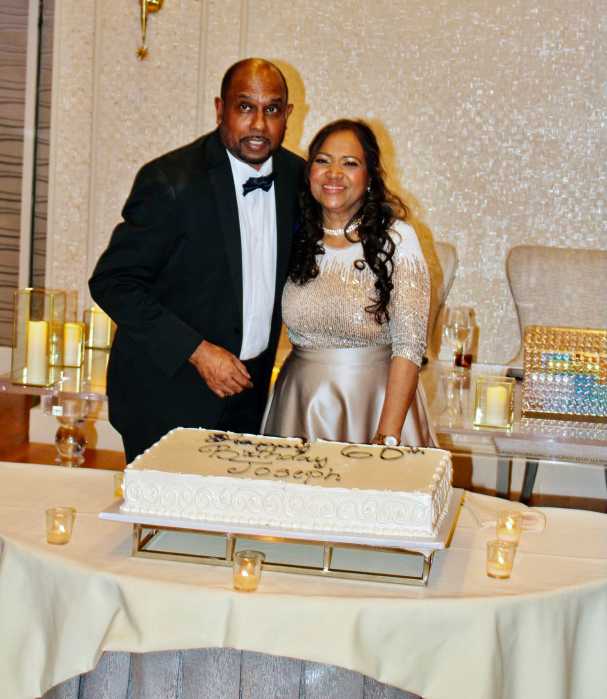BY NATHAN RILEY | While we wonder who will be the Democratic candidate for president, the jockeying has started for the job as New York's next mayor.
City Council Speaker Christine Quinn this week advanced her cause when Mayor Michael Bloomberg's congestion pricing plan was approved. A failure to support the bill or orchestrate its passage would have hurt; her leadership skills would be mocked and her mayoral prospects called into doubt.
But having succeeded, Quinn can enthuse, “I did this as speaker; I can do even more as mayor.”
The many civic activists who support congestion pricing will be very sympathetic to that argument from her.
Nonetheless, winning in 2009 will be a hard slog.
While Quinn enjoys this moment in the public eye, significantly, her leading opponent, Representative Anthony Weiner, has carried his fight deep into her home base. On March 26, he made a masterful presentation to the Stonewall Democratic Club of New York. Speaking for two hours, he made it clear that even though Quinn is an out lesbian, from Chelsea no less, she cannot take the support of politically active queers for granted.
Weiner greeted club members by name, and in a relaxed friendly manner established his credentials as an aggressive advocate of gay concerns.
Weiner supported inclusion of transgendered persons in the federal bill banning employment discrimination, to the point of voting against the gay-only version of ENDA advanced by the House. ENDA has to date been a symbolic one-house vote in Congress, and even if it cleared the Senate would certainly be vetoed by President George W. Bush. Weiner argued it was a mistake for the Democrats to preemptively eliminate gender identity protections from the bill gay Massachusetts Democrat Barney Frank originally introduced without any pushback for that from the Republicans. His position boiled down to the argument that unilateral disarmament never makes sense, regardless of what may or may not be conceded in negotiations for a final bill.
Then tipping his hat toward the current vogue for emphasizing the need for Democratic Party unity, Weiner conceded the merits of the other side's opinion. For many Congress members, ENDA was the first pro-gay vote of their career and therefore even the watered-down version had substantive merit. He also joked that his refusal to support the amended version marked the first time his rating from the Human Rights has dipped below a perfect 100.
Weiner has supported gay marriage since his initial run for Congress in 1998, at a time when such a stance held substantial risk for political peril. One of his Democratic primary opponents, Noach Dear, an Orthodox Jew, who like Weiner served on the City Council at the time, taped Weiner's endorsement talk to the Lambda Independent Democrats, Brooklyn's gay club. The tapes were distributed, causing a furor among the Orthodox. Weiner now says his opponents came to respect him for refusing to compromise his beliefs.
The congressman, whose district straddles Brooklyn and Queens, offered the optimistic conclusion that marriage equality is losing its potency as a wedge issue. A majority of voters still oppose gay marriage, but their apprehensions are diminishing. They don't buy that their marriages will be affected by offering the same rights to others. At the national level, however, Weiner argues, politicians remain overly anxious about this issue.
The gay community, in his reckoning, should push the Democratic presidential candidates to pledge no interference with marriage equality initiatives in the states or in efforts aimed at dismantling the federal Defense of Marriage Act in the Congress. If elected president, they shouldn't ask California, New York, or New Jersey to postpone any legislative action out of fear it would embarrass the party.
Weiner returned to the theme of unity in his discussion of the primaries remaining in the presidential contest. His first mention of Senator Hillary Clinton's name drew scattered applause from about a third of the audience of 50. Weiner called Obama an “extraordinary” politician whose campaign “uplifts” the nation by appealing to its intellect and moral sense. On the other hand, Clinton has experience, he said. Had Weiner left it there, it would have been faint praise and meant little.
But he went on to describe experience as a “foundation,” a solid base that made Clinton the “most qualified” candidate. He argued that her now-controversial trip to Bosnia in 1996 is nonetheless an example of that experience. While Obama worked at a law firm, she was talking to generals and diplomats. For a period of several days, the then-first lady was immersed in the problems of a region that will be an international hot spot for the foreseeable future. As Weiner continued his peroration, the mention of Clinton's name drew applause from everyone in the room.
I asked about the decline of nightlife under Bloomberg and former Mayor Rudy Giuliani, and after hearing an eruption of spontaneous applause from which he clearly got the point, Weiner gave a thoughtful, but essentially non-committal answer. He believes the root cause is the increase in real estate values. When the Gansevoort Meat Market became a neighborhood of $3 million condos, the raunch had to go. But Weiner conveyed his understanding of the vital role night life plays in the city. He talked about the issue as a zoning problem and made no mention of police enforcement. It was not, he said, just a problem of helping small bars and night clubs, it was also finding a place where you can get $1.50 hot dog at 2:30 in the morning. The city risked becoming “over-sanitized.”
The Stonewall appearance was retail politics – campaigning writ small, and a sure sign Weiner is going after Quinn's base in a big way. She should have strength in Queens and other strongly Catholic areas, neighborhoods largely opposed to congestion pricing. Weiner, at a safe distance from having to make a real decision, opposes congestion pricing, giving an altogether different group of Quinn voters a reason to give him a shot.












